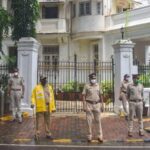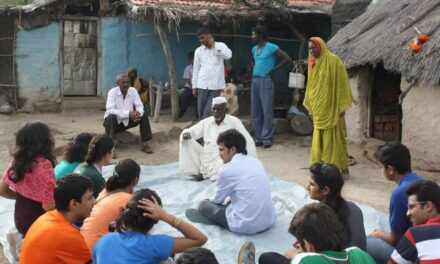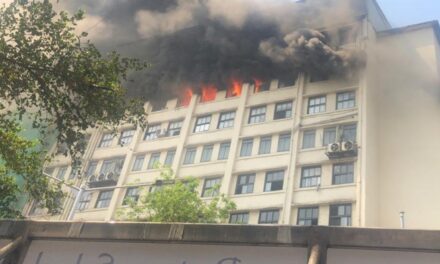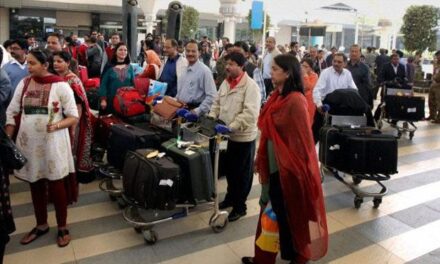
Air quality in Mumbai’s Mazgaon worse than Delhi’s Chandni Chowk
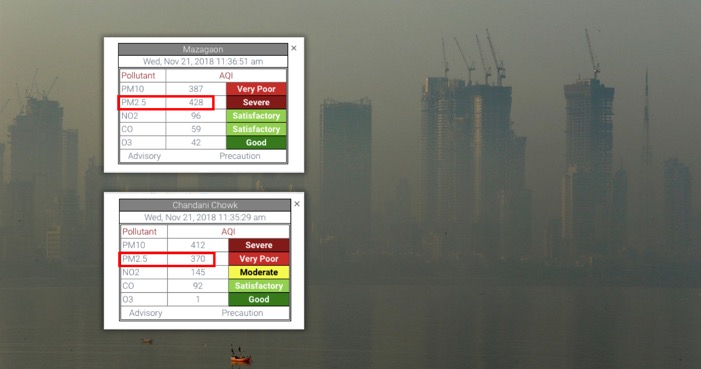

The AQI of Mazgaon breached ‘severe’ category yesterday as PM2.5 level reached 415. It rose further to 428 today
If you thought you were breathing better air in Mumbai than the country’s most polluted city, you are in for a rude shock. The air quality of Mumbai’s Mazgaon has been worse than that of Delhi’s Chandni Chowk since the last few days.
According to System of Air Quality and Weather Forecasting and Research (SAFAR), which monitors the Air Quality Index (AQI) at several stations in the city, Mazgaon has witnessed worse air quality than all of Delhi in the last two days.
The AQI of Mazgaon breached the ‘severe’ category on Tuesday as major pollutant PM (Particulate Matter) 2.5 level reached 415. It rose further to 428 on Wednesday. In comparison, the AQI of 358 was recorded in Delhi, the most polluted city in the country.
Earlier today, the AQI of Chandni Chowk in Delhi rose to 370. The levels recorded at other stations like Pitampura, Pusa, Lodhi Road, Noida etc were also lower than that of Mazgaon, which incidentally has been the worst affected area in Mumbai.
Gufran Beig, Project Director, SAFAR has termed Mazgaon’s poor air quality a temporary phenomenon and blamed construction activity in the area coupled with the low temperatures, fog & wind patterns for the drastic change.
Although PM2.5 levels – most commonly used to determine the overall air quality – were higher in Mumbai, the PM10, Nitrogen Dioxide, and Carbon Dioxide levels were higher in Delhi.
An AQI between 0 and 50 is considered ‘good’, 51 and 100 as ‘satisfactory’, 101 and 200 as ‘moderate’, 201 and 300 as ‘poor’, 301 and 400 as ‘very poor’, and 401 and 500 as ‘severe’.
SAFAR, in its health advisory, has urged sensitive groups to avoid all outdoor physical activity and asthmatics to keep medicine handy.
Other groups, meanwhile, have been asked to avoid heavy exertion, minimise early morning outdoor activity, wear N-95 or P-100 respirators and close windows when indoors.



